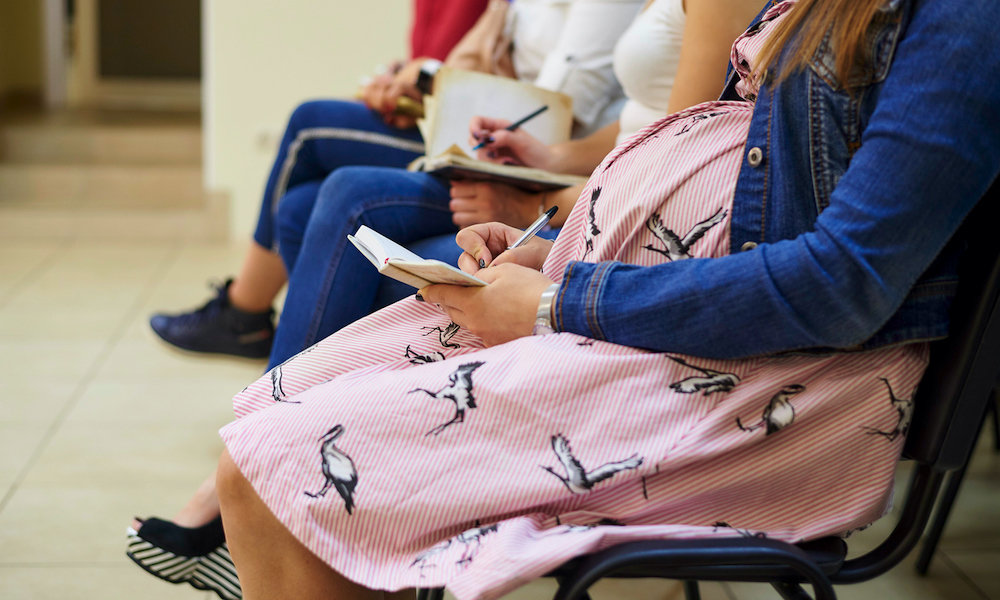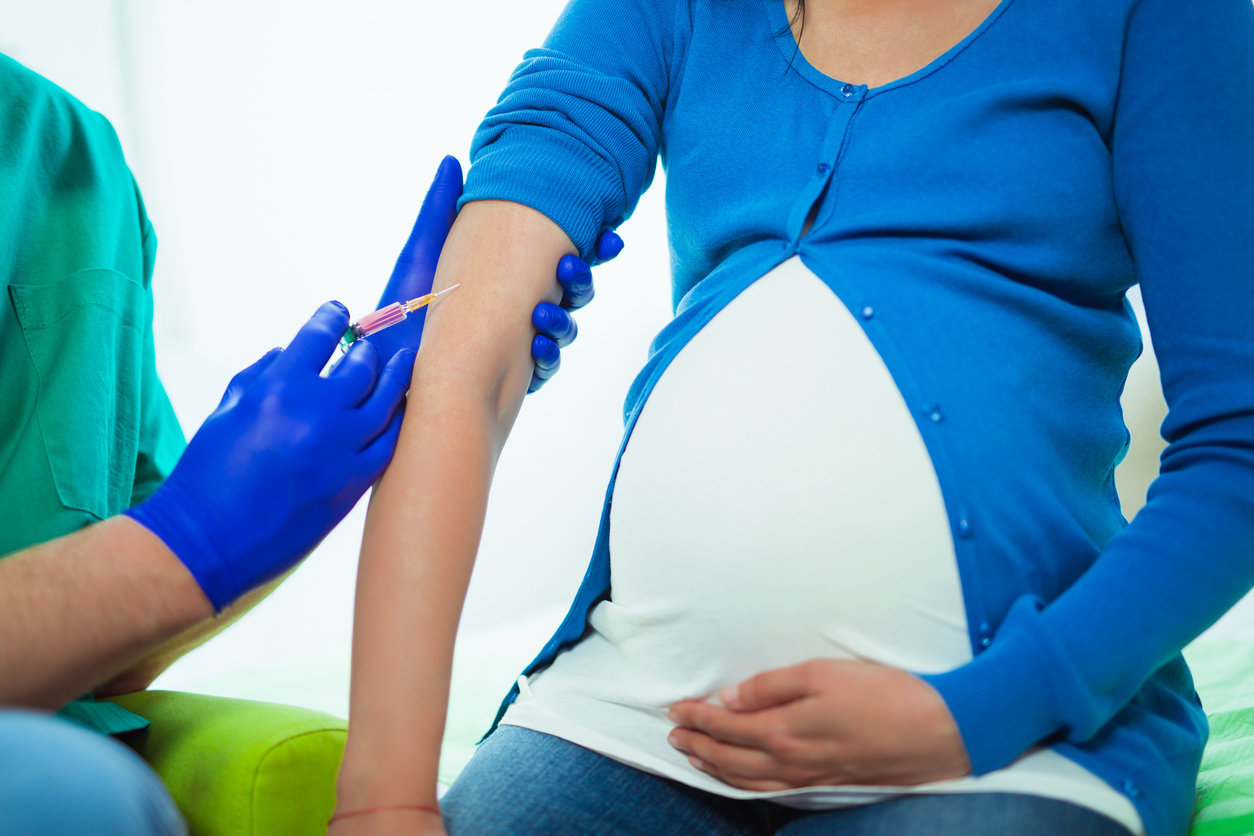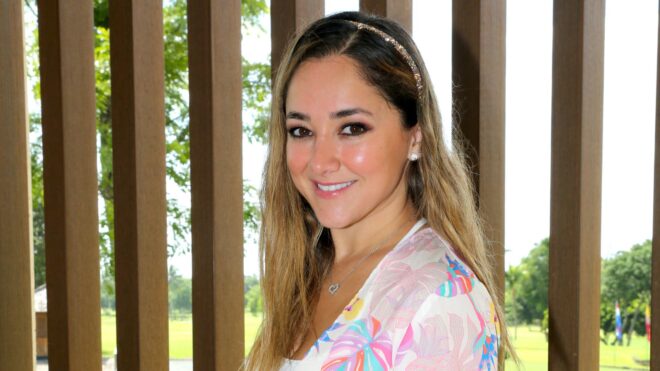
We all have so many questions when it comes to the novel coronavirus as it continues to spread across the globe. For pregnant women, perhaps the most prevalent question is, "If I contract COVID-19, will I inevitably pass it on to my baby?" How can a mother-to-be not be worried at this point, especially when coronavirus is so contagious? Well, so far, two small studies conducted by Chinese researchers have hopeful news to share regarding whether pregnant women with COVID-19 will pass it on to their babies.
More from MamásLatinas: Here's how celebs are trying to stay safe amid coronavirus outbreak
The current research findings suggest a woman with COVID-19 will not necessarily pass the virus on to her baby, but it's much more likely if the baby is delivered via cesarean section. Yes, we know that's not a definitive answer, and that's because, as previously stated, studies conducted on how COVID-19 affects pregnant women and their fetuses are few and only include a small number of participants. Still, the findings are important and here's what you should know.
A study published on Monday had some hopeful news.
Chinese researchers published the findings of a study following four pregnant women with COVID-19 in the medical journal Frontiers in Pediatrics on Monday. All four women gave birth to full-term infants. The babies were isolated from their mothers after being born. Of the four infants, researchers were given permission to test three of them for the virus and of those three, none tested positive for the virus.
"None of the infants developed serious clinical symptoms such as fever, cough, diarrhea, or abnormal radiologic or hematologic evidence, and all four infants were alive at the time of hospital discharge," according to the study. This is most definitely positive news even if it isn't definitive.
Another small study also gives hope.
Another study published earlier in March in medical journal The Lancet followed nine pregnant women who had been diagnosed with COVID-19 late in their pregnancy. The focus of the study was to "investigate the possibility of intrauterine transmission of COVID-19 infection." Researchers tested amniotic fluid, cord blood, and neonatal throat swabs at birth to determine "the possibility of intrauterine fetal infection." All the samples they collected tested negative for the virus.
But what about newborns who have tested positive for COVID-19?
Although, the findings of the two studies we shared are hopeful, you might be wondering about stories we've shared with you before about a newborn in England who tested positive for COVID-19 just minutes after birth or an infant in China who tested positive 30 hours after birth. In both those instances, it remains unclear whether the babies contracted the virus before being born, during the process of being born, or after having been born. Also, the studies we shared were conducted on women who delivered via C-section, so the findings don't necessarily apply to women who give birth vaginally.
What do US public officials have to say about COVID-19 and pregnancy?
The Centers for Disease Control and Prevention has a resource page about COVID-19 for pregnant women, but it is clear in stating, "We do not know at this time if COVID-19 would cause problems during pregnancy or affect the health of the baby after birth." The most important bit of advice the institution gives is that pregnant women should do the same things as the general public to avoid infection and stop the spread of the virus. Those actions include: covering your cough with your elbow, avoiding sick people, washing your hands with soap and water, or using alcohol-based hand sanitizer when soap and water aren't available.
Also, the American College of Obstetricians and Gynecologists recommends pregnant women get a flu shot.

Although the flu vaccine is safe for pregnant women, only one-third of pregnant women get it, says Dr. Iffath Hoskins. It's important that pregnant women get it not just to protect against the flu, but also because as Dr. Hoskins, who is an OB/GYN at NYU Langone Medical Center in New York reminds us, "Every cough is not coronavirus." It could be the flu or even allergies. If you get the flu shot when you are pregnant and you get a cough, you can rule out the flu as a cause, and help doctors narrow down the possible cause.




